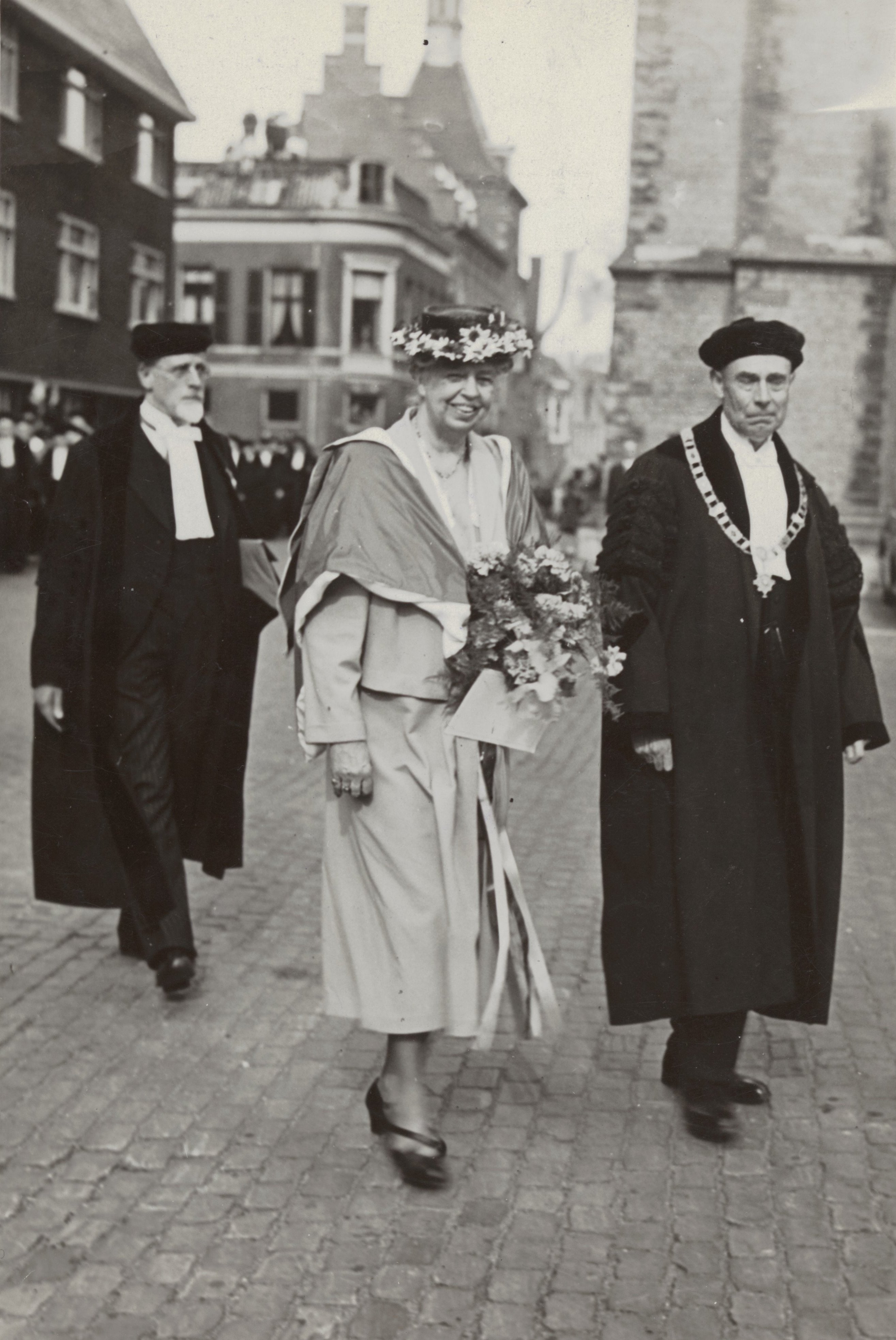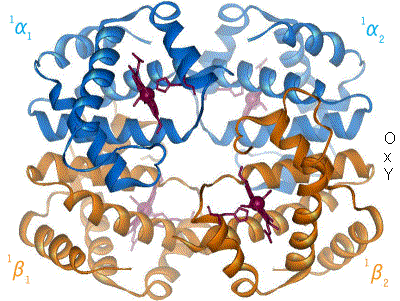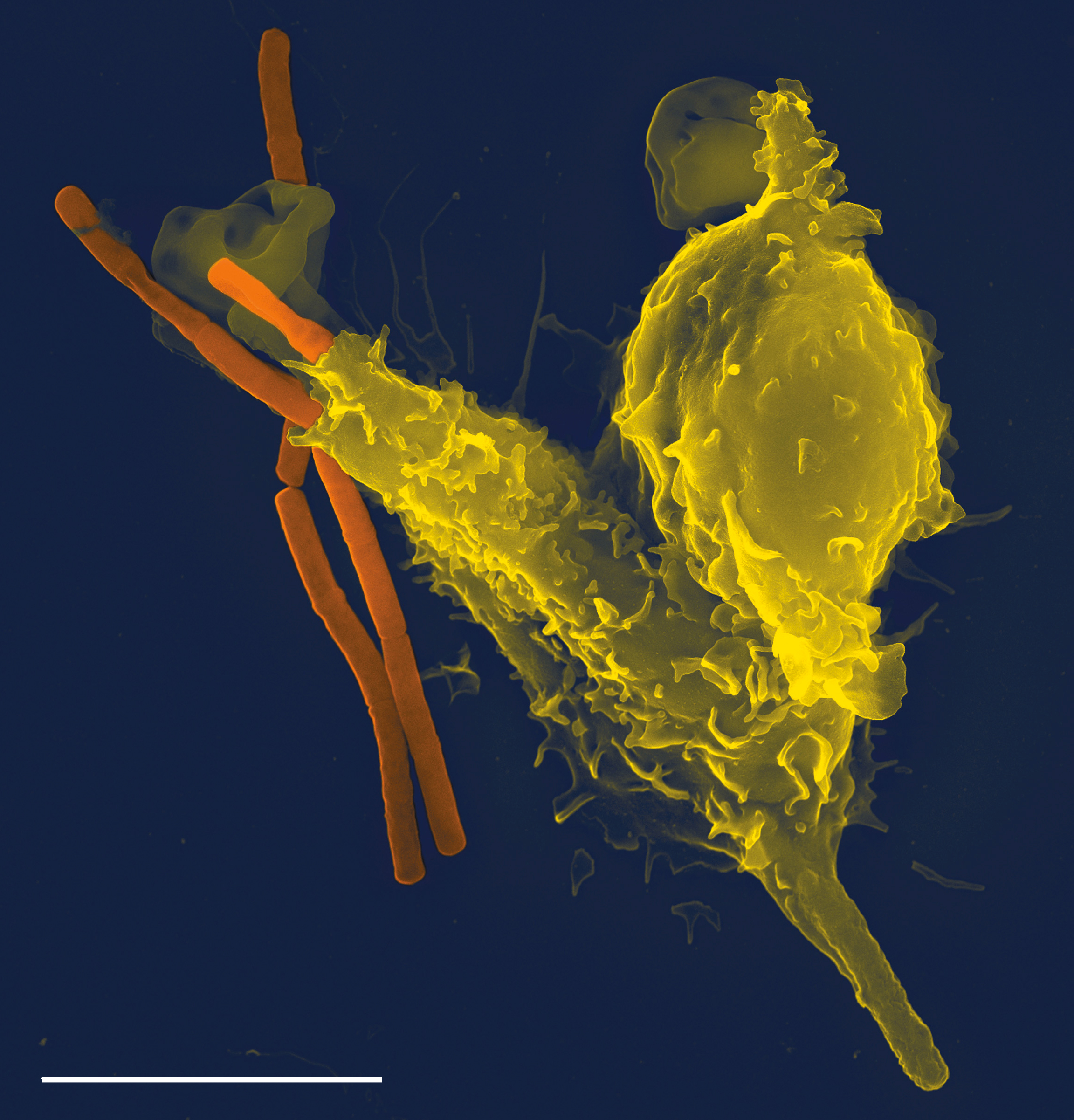|
Piet Gros
Piet Gros (born July 31, 1962 in Dokkum) is a Dutch chemist and professor biomacromolecular crystallography at Utrecht University. In 2010 he received the NWO Spinoza Prize for the elucidation of the three-dimensional structure of the C3 protein, which plays a central role in the complement system and contributes to innate immunity. Biography Gros was born in Dokkum, Netherlands. He studied chemistry at the University of Groningen, where he graduated cum laude with a master's degree. Five years later Gros received his PhD degree cum laude at the same university, with a thesis on protein crystallography. Subsequently he became a postdoctoral researcher at the ETH Zurich and later at Yale University. In 1994 Gros was given a position at Utrecht University to conduct experimental research towards new applications for protein crystallography. In 2002 he was given the position of full professor. From 2007 until 2010 Gros was head of the department of chemistry and from 2012 to 2 ... [...More Info...] [...Related Items...] OR: [Wikipedia] [Google] [Baidu] |
Utrecht University
Utrecht University (UU; nl, Universiteit Utrecht, formerly ''Rijksuniversiteit Utrecht'') is a public research university in Utrecht, Netherlands. Established , it is one of the oldest universities in the Netherlands. In 2018, it had an enrollment of 31,801 students, and employed 7,191 faculty and staff. In 2018, 525 PhD degrees were awarded and 6,948 scientific articles were published. The 2018 budget of the university was €857 million. Utrecht University counts a number of distinguished scholars among its alumni and faculty, including 12 Nobel Prize laureates and 13 Spinoza Prize laureates. Utrecht University has been placed consistently in the top 100 universities in the world by prominent international ranking tables. The university is ranked as the best university in the Netherlands by the Shanghai Ranking of World Universities 2022, ranked 14th in Europe and 54th in the world. The university's motto is "Sol Iustitiae Illustra Nos", which means ''May the Sun of Righteous ... [...More Info...] [...Related Items...] OR: [Wikipedia] [Google] [Baidu] |
Royal Netherlands Academy Of Arts And Sciences
The Royal Netherlands Academy of Arts and Sciences ( nl, Koninklijke Nederlandse Akademie van Wetenschappen, abbreviated: KNAW) is an organization dedicated to the advancement of science and literature in the Netherlands. The academy is housed in the Trippenhuis in Amsterdam. In addition to various advisory and administrative functions it operates a number of research institutes and awards many prizes, including the Lorentz Medal in theoretical physics, the Dr Hendrik Muller Prize for Behavioural and Social Science and the Heineken Prizes. Main functions The academy advises the Dutch government on scientific matters. While its advice often pertains to genuine scientific concerns, it also counsels the government on such topics as policy on careers for researchers or the Netherlands' contribution to major international projects. The academy offers solicited and unsolicited advice to parliament, ministries, universities and research institutes, funding agencies and internationa ... [...More Info...] [...Related Items...] OR: [Wikipedia] [Google] [Baidu] |
Spinoza Prize Winners
Baruch (de) Spinoza (born Bento de Espinosa; later as an author and a correspondent ''Benedictus de Spinoza'', anglicized to ''Benedict de Spinoza''; 24 November 1632 – 21 February 1677) was a Dutch philosopher of Portuguese-Jewish origin, born in Amsterdam. One of the foremost exponents of 17th-century Rationalism and one of the early and seminal thinkers of the Enlightenment and modern biblical criticism including modern conceptions of the self and the universe, he came to be considered "one of the most important philosophers—and certainly the most radical—of the early modern period." Inspired by Stoicism, Jewish Rationalism, Machiavelli, Hobbes, Descartes, and a variety of heterodox religious thinkers of his day, Spinoza became a leading philosophical figure during the Dutch Golden Age. Spinoza's given name, which means "Blessed", varies among different languages. In Hebrew, his full name is written . In most of the documents and records contemporary with Spinoza's ... [...More Info...] [...Related Items...] OR: [Wikipedia] [Google] [Baidu] |
Members Of The Royal Netherlands Academy Of Arts And Sciences
The Royal Netherlands Academy of Arts and Sciences (Dutch: ''Koninklijke Nederlandse Akademie van Wetenschappen'', abbreviated: KNAW) is an organization dedicated to the advancement of science and literature in the Netherlands. The academy is housed in the Trippenhuis in Amsterdam. Founded in 1808, members are appointed for life by co-optation. Lists of members sorted alphabetically * Members of the Royal Netherlands Academy of Arts and Sciences (A) * Members of the Royal Netherlands Academy of Arts and Sciences (B) * Members of the Royal Netherlands Academy of Arts and Sciences (C) * Members of the Royal Netherlands Academy of Arts and Sciences (D) * Members of the Royal Netherlands Academy of Arts and Sciences (E) * Members of the Royal Netherlands Academy of Arts and Sciences (F) * Members of the Royal Netherlands Academy of Arts and Sciences (G) * Members of the Royal Netherlands Academy of Arts and Sciences (H) * Members of the Royal Netherlands Academy of Arts and Scie ... [...More Info...] [...Related Items...] OR: [Wikipedia] [Google] [Baidu] |
People From Dokkum
A person ( : people) is a being that has certain capacities or attributes such as reason, morality, consciousness or self-consciousness, and being a part of a culturally established form of social relations such as kinship, ownership of property, or legal responsibility. The defining features of personhood and, consequently, what makes a person count as a person, differ widely among cultures and contexts. In addition to the question of personhood, of what makes a being count as a person to begin with, there are further questions about personal identity and self: both about what makes any particular person that particular person instead of another, and about what makes a person at one time the same person as they were or will be at another time despite any intervening changes. The plural form "people" is often used to refer to an entire nation or ethnic group (as in "a people"), and this was the original meaning of the word; it subsequently acquired its use as a plural form of per ... [...More Info...] [...Related Items...] OR: [Wikipedia] [Google] [Baidu] |
Living People
Related categories * :Year of birth missing (living people) / :Year of birth unknown * :Date of birth missing (living people) / :Date of birth unknown * :Place of birth missing (living people) / :Place of birth unknown * :Year of death missing / :Year of death unknown * :Date of death missing / :Date of death unknown * :Place of death missing / :Place of death unknown * :Missing middle or first names See also * :Dead people * :Template:L, which generates this category or death years, and birth year and sort keys. : {{DEFAULTSORT:Living people 21st-century people People by status ... [...More Info...] [...Related Items...] OR: [Wikipedia] [Google] [Baidu] |
1964 Births
Events January * January 1 – The Federation of Rhodesia and Nyasaland is dissolved. * January 5 - In the first meeting between leaders of the Roman Catholic and Orthodox churches since the fifteenth century, Pope Paul VI and Patriarch Athenagoras I of Constantinople meet in Jerusalem. * January 6 – A British firm, the Leyland Motor Corp., announces the sale of 450 buses to the Cuban government, challenging the United States blockade of Cuba. * January 9 – ''Martyrs' Day'': Armed clashes between United States troops and Panamanian civilians in the Panama Canal Zone precipitate a major international crisis, resulting in the deaths of 21 Panamanians and 4 U.S. soldiers. * January 11 – United States Surgeon General Luther Terry reports that smoking may be hazardous to one's health (the first such statement from the U.S. government). * January 12 ** Zanzibar Revolution: The predominantly Arab government of Zanzibar is overthrown by African nationalist rebels; a ... [...More Info...] [...Related Items...] OR: [Wikipedia] [Google] [Baidu] |
Gregori Aminoff Prize
The Gregori Aminoff Prize is an international prize awarded since 1979 by the Royal Swedish Academy of Sciences in the field of crystallography, rewarding "a documented, individual contribution in the field of crystallography, including areas concerned with the dynamics of the formation and dissolution of crystal structures. Some preference should be shown for work evincing elegance in the approach to the problem." The prize, which is named in memory of the Swedish scientist and artist Gregori Aminoff (1883–1947), Professor of Mineralogy at the Swedish Museum of Natural History from 1923, was endowed through a bequest by his widow Birgit Broomé-Aminoff. The prize can be shared by several winners. It is considered the Nobel prize for crystallography. Recipients of the Prize SourceRoyal Swedish Academy of Science See also * List of chemistry awards * List of physics awards This list of physics awards is an index to articles about notable awards for physics. The list include ... [...More Info...] [...Related Items...] OR: [Wikipedia] [Google] [Baidu] |
Volkskrant
''de Volkskrant'' (; ''The People's Paper'') is a Dutch daily morning newspaper. Founded in 1919, it has a nationwide circulation of about 250,000. Formerly a leading centre-left Catholic broadsheet, ''de Volkskrant'' today is a medium-sized centrist compact. Pieter Klok is the current editor-in-chief. History and profile ''De Volkskrant'' was founded in 1919 and has been a daily morning newspaper since 1921. Originally ''de Volkskrant'' was a Roman Catholic newspaper closely linked to the Catholic People's Party and the Catholic pillar. The paper temporarily ceased publication in 1941. On its re-founding in 1945, its office moved from Den Bosch to Amsterdam. It became a left-wing newspaper in the 1960s, but began softening its stance in 1980. On 23 August 2006 the ''Volkskrant'' published its 25,000th edition. In 1968, the ownership of De Volkskrant and Het Parool merged into a new parent, De Perscombinatie. Het Parool gained control due to the larger investment in the par ... [...More Info...] [...Related Items...] OR: [Wikipedia] [Google] [Baidu] |
Structural Biology
Structural biology is a field that is many centuries old which, and as defined by the Journal of Structural Biology, deals with structural analysis of living material (formed, composed of, and/or maintained and refined by living cells) at every level of organization. Early structural biologists throughout the 19th and early 20th centuries were primarily only able to study structures to the limit of the naked eye's visual acuity and through magnifying glasses and light microscopes. In the 20th century, a variety of experimental techniques were developed to examine the 3D structures of biological molecules. The most prominent techniques are X-ray crystallography, nuclear magnetic resonance, and electron microscopy. Through the discovery of X-rays and its applications to protein crystals, structural biology was revolutionized, as now scientists could obtain the three-dimensional structures of biological molecules in atomic detail. Likewise, NMR spectroscopy allowed information about p ... [...More Info...] [...Related Items...] OR: [Wikipedia] [Google] [Baidu] |
Immune System
The immune system is a network of biological processes that protects an organism from diseases. It detects and responds to a wide variety of pathogens, from viruses to parasitic worms, as well as cancer cells and objects such as wood splinters, distinguishing them from the organism's own healthy tissue. Many species have two major subsystems of the immune system. The innate immune system provides a preconfigured response to broad groups of situations and stimuli. The adaptive immune system provides a tailored response to each stimulus by learning to recognize molecules it has previously encountered. Both use molecules and cells to perform their functions. Nearly all organisms have some kind of immune system. Bacteria have a rudimentary immune system in the form of enzymes that protect against virus infections. Other basic immune mechanisms evolved in ancient plants and animals and remain in their modern descendants. These mechanisms include phagocytosis, antimicrobial pe ... [...More Info...] [...Related Items...] OR: [Wikipedia] [Google] [Baidu] |


_1938.jpg)


